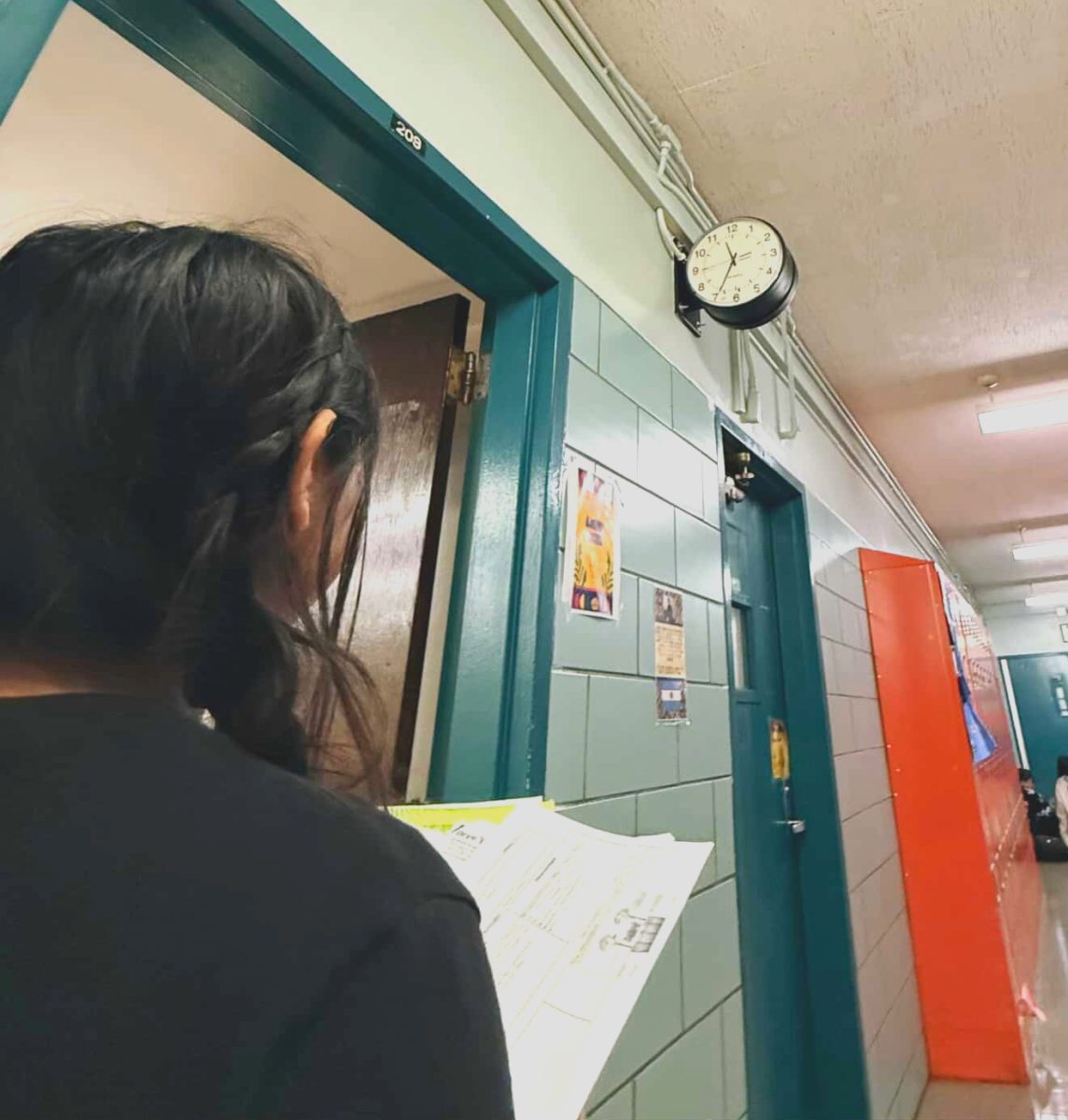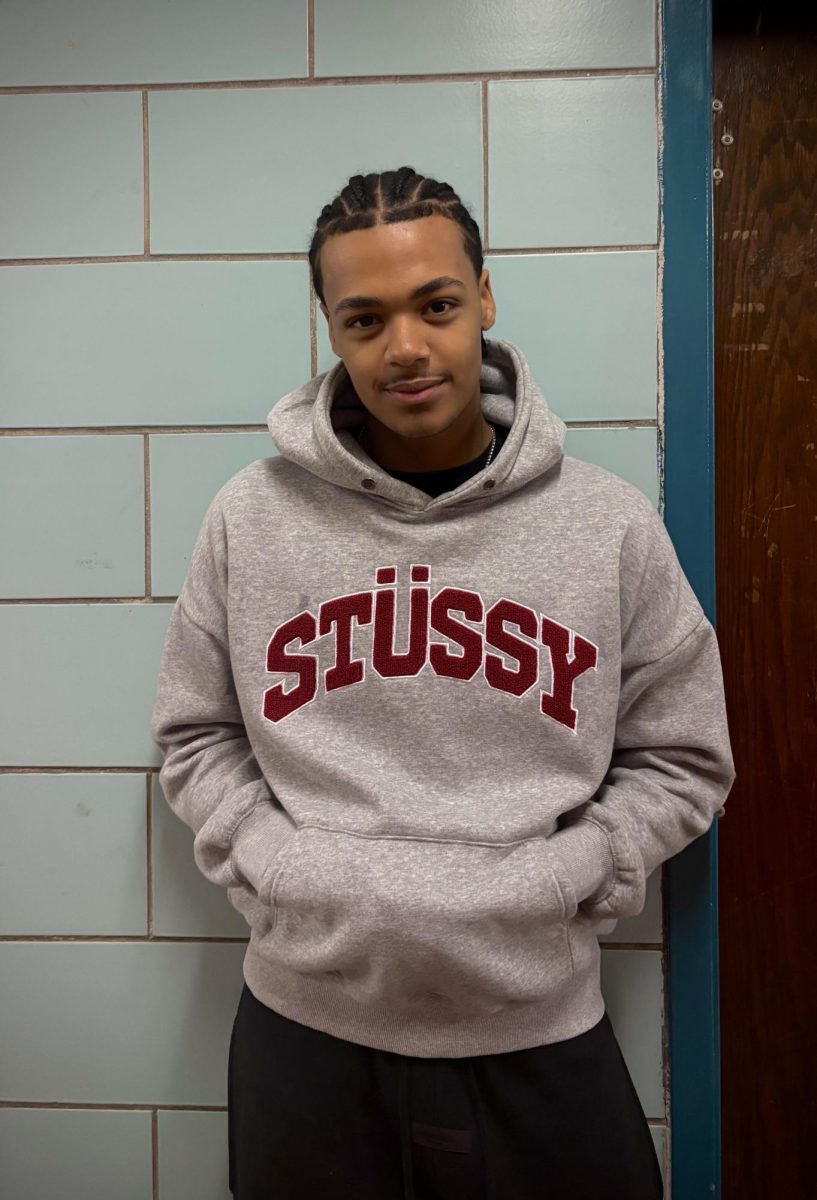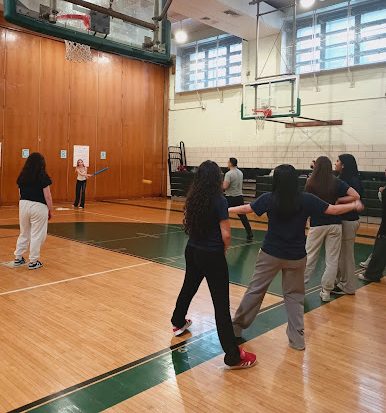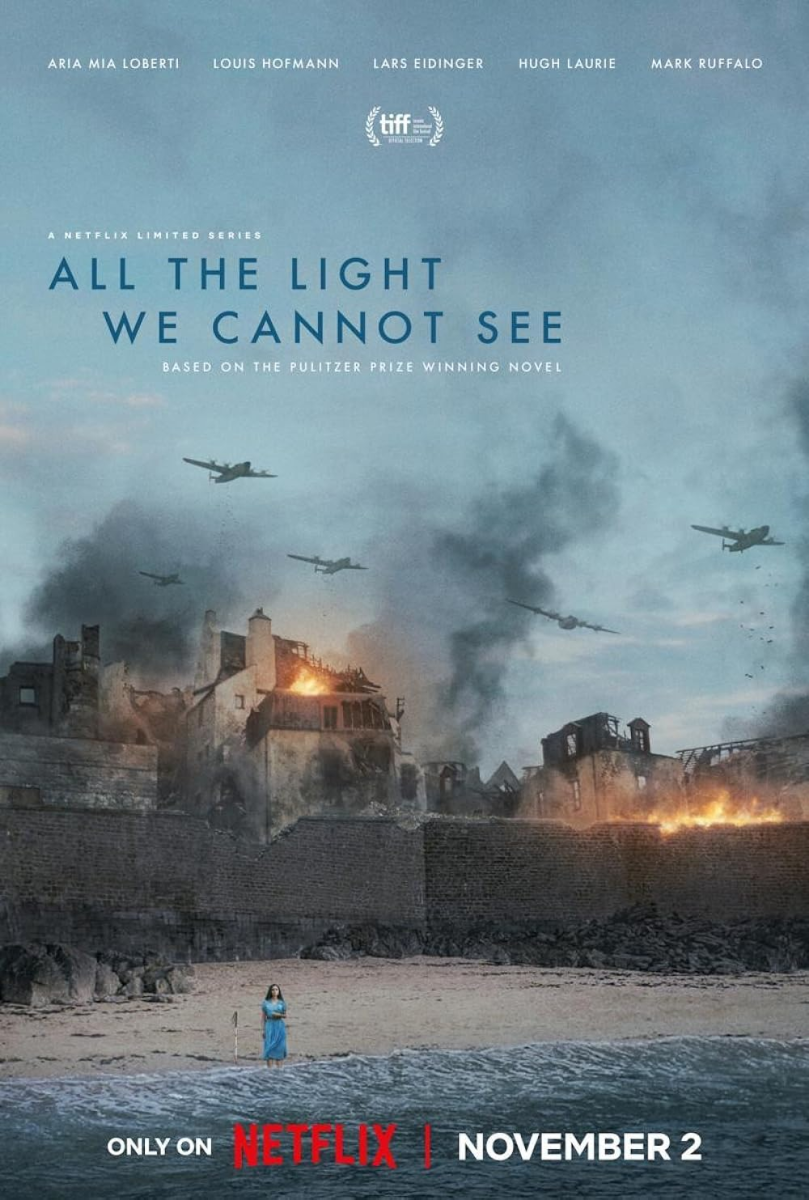Anthony Doerr’s All the Light We Cannot See (2014) is a beautiful and heartbreaking novel about two teenagers living through World War II: Marie-Laure LeBlanc, a blind girl from Paris, and Werner Pfennig, an engineering mastermind from the poor coal-mining district of Germany. They both suffer through massive changes in their lives due to the invasion of the Nazis and the societal changes they brought. Marie-Laure and her father are forced to leave Paris for Saint Malo, Normandy. Werner is placed in a specialized Nazi-training school so that he can use his technological talent to help the Führer (Hitler) rise to power. Their lives begin to intertwine as they navigate the chaos and destruction of the war; through the descriptions of their journeys, the book explores themes of bravery, resilience, and the power of human connection.
On November 2, 2023, the television adaptation of the novel was released onto Netflix; directed by Shawn Levy, the miniseries received a wide range of reviews and ratings, with some absolutely loving this take on the story, and others thinking it was a major disappointment that did not live up to the greatness of Doerr’s work. The four-part series does in fact change a number of the book’s parts, from the inclusion/addition of characters, to completely altering the ending and leaving out scenes that some view as the most evocative and impactful moments of the entire story.
Warning: This article contains spoilers for Anthony Doerr’s All the Light We Cannot See, as well as Netflix’s adaptation of the novel.
While the addition of a couple characters was a very minor change, it did in fact bring some depth to the storyline that may not have been present in the book. Director Shawn Levy made the choice to add new characters, Sergeant Schmidt and Captain Mueller. Schmidt, who was sent by Captain Mueller to accompany Werner during his time in Saint Malo, displays the political unease that was felt during World War II. Werner had always been against the Nazi agenda, but was forced to assist it; Schmidt’s character was able to represent the rigidity that surrounded his actions, and the inability to stray from Nazi principles. The incorporation of these new characters brought something of value to the show, and thus was not largely seen as an unacceptable difference from the novel.
Levy also chose to completely exclude a character from the miniseries: Frederick, a boy that Werner had met at the military academy. They had bonded over being bullied because of their ineptitude when it came to the highly-demanding athletic performances of the school. Although they had become very close, Werner slowly started to distance himself from Frederick as he was increasingly pushed around by the other students. It became so severe, that Frederick is brutally attacked and left with brain damage; once Werner finds out about this, he is immediately struck with guilt, as he could have protected his friend, but was too caught up in what others would think of him.
The scene was incredibly important to Werner’s character development, showing the sympathetic and self-aware side of him that proved his good-natured intentions. When the television adaptation was released, many viewers were outraged to discover that this entire subplot was not included, finding that it left out one of the most powerful moments of the story.
On the other hand, viewers had much more of an issue with the ending of the series. The novel ended with Werner finding Marie-Laure and helping her escape from German Sergeant Von Rumpel, then leading her out of the city where she is able to flee, but he is imprisoned and eventually passes away. The narration then jumps to the year 1974, in which we learn that Werner’s sister Jutta ends up meeting Marie-Laure, who has become a scientist at the Museum of Natural History in Paris.
This ending was drastically different from that of the show; while Werner and Marie-Laure still end up parting ways, the original final scenes were replaced with Werner being taken into custody by the U.S., and Marie-Laure staying in Saint Malo. It could be said that this offered a happier finale, many fans were upset at the exclusion of the epilogue, and thought that the show’s ending was extremely unsatisfying now that the characters’ stories were effectively left unfinished, or at least their endings unclear.
Despite the noticeable changes that were made, they did not by any means take away from the overarching message of Doerr’s story, that light can find its way into lives in many ways, whether through love, kindness, knowledge, or any other way that one finds hope in the midst of conflict and chaos.




























